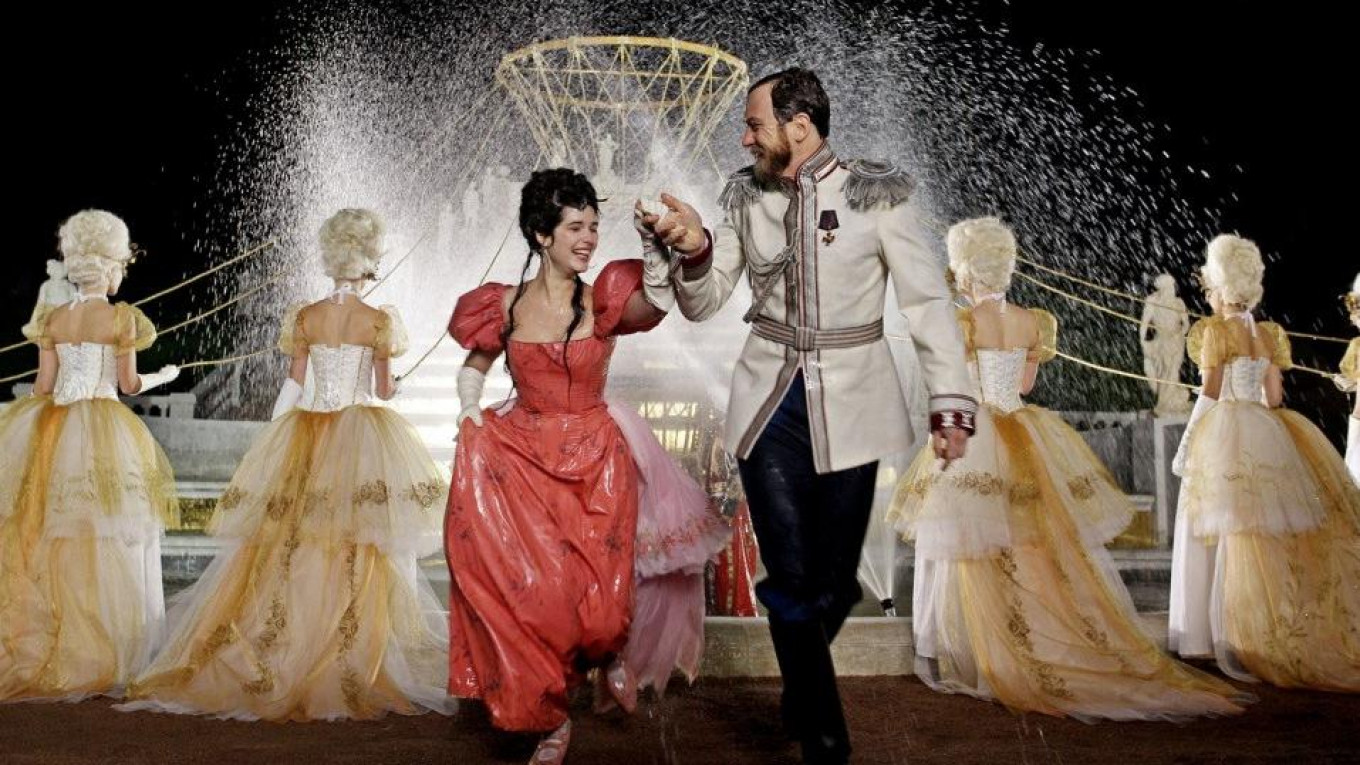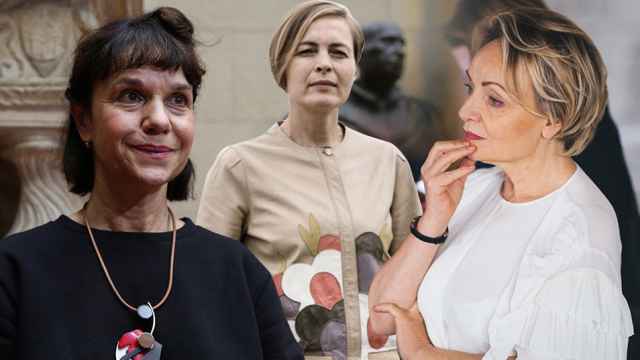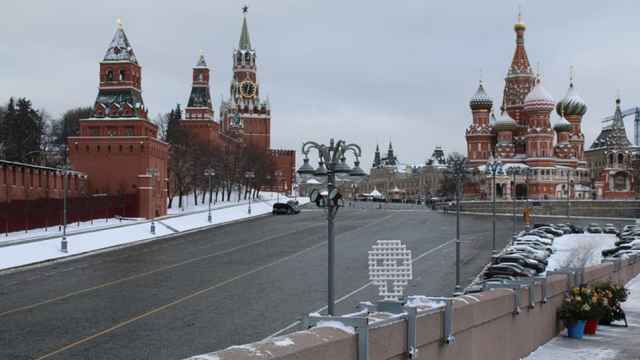Fully 120 years separate the people involved in these dramatic events. And yet, they are all united by one thing — passion.
Meet the cast of this unusual drama:
There’s Nicholas Alexandrovich Romanov, crown prince, heir to the throne and, from late 1894, Emperor of Russia.
Mathilde Kschessinska. Born in 1872, the ballet dancer of Polish origin is a prima ballerina at the Mariinsky Theater in St. Petersburg.
Alexei Yefimovich Uchitel, the famed Russian film director and head of Rock Studios, born in 1951.
And finally, Natalia Vladimirovna Poklonskaya: lawyer, former Prosecutor General of the republic of Crimea and, from 2016, State Duma Deputy.
Our story begins in 1890, when the young Nicholas Romanov first gazed upon the 18-year-old Mathilde Kschessinska during a ballet performance and immediately fell for her.
At that time, Romanov served in the army, traveled, went to government meetings, and generally prepared for his future role as an autocrat. Sex education was also apparently part of his training. At least, his father, Tsar Alexander III, had nothing against him chasing affairs.
The one between Nicholas and Mathilde lasted until 1894, when the Emperor’s declining health and concerns about succession to the throne forced Nicholas to urgently marry Alexandra Feodorovna, Princess of Hesse-Darmstadt.
Mathilde went on to have a long and successful career and a marriage to a different Romanov — the Grand Duke Andrei Vladimirovich.
Fast-forward more than 100 years to 2016, when news surfaces that a Russian filmmaker is planning to release a movie titled “Mathilde” based on the ballerina’s romance with the young tsarevich.
Alexei Uchitel, who previously produced such remarkable films as “His Wife’s Diary,” “Dreaming of Space,” and “The Edge,” would be its director.
It so happens I worked with Uchitel in the late 1980s on a film about the Soviet underground, and I have only fond memories of that experience. Unlike more rebellious figures of the Russian cultural scene, Uchitel never had problems with the authorities.
His career, which brought him international film festival awards and state honors, went smoothly enough until his encounter with two formidable women — Mathilde Kschessinska and Natalia Poklonskaya — put an end to that charmed existence.
In 2014, Russia got both Crimea and Natalia Poklonskaya. She became a fairly well-known figure even then. First, because of her appearance — at once alluring and slightly malevolent.
Her roundish face, unnaturally smooth skin, and enormous eyes also make her look remarkably like a Japanese “anime” figure. She was first given the popular nickname “Nyash-Myash” (from the slang for “cutie," nyashka) and now is most often referred to as “Animeshka” — a feminine diminutive of “anime.”
Her second claim to fame is her incredibly deep devotion to Emperor Nicholas II, shot and killed in 1918 by the Bolsheviks. This first manifested itself publicly when the former prosecutor carried a portrait of the fallen autocrat during an “Immortal Regiment” parade, when participants normally carry photos of loved ones who served in World War II.
Of course, the Tsar had no connection to that war or to the Allied victory, so her display was seen as a sign of either quirkiness or a lack of education. The truth, however, was even weirder.
It soon became clear that the State Duma Deputy’s obsession with the last Russian Tsar bordered on love, with strange sexual overtones. It turned out that Poklonskaya would stop at nothing to have her beloved canonized as Saint Nicholas Romanov. Soon, the opportunity to demonstrate the depth of her devotion arose – and it came in the form of “Mathilde,” the film.
In December 2016, Poklonskaya submitted a request to Russia's General Prosecutor's Office to probe Uchitel’s film for signs of anti-Russian or anti-religious sentiment, and for anything that could insult the feelings of believers – a crime in Russia.
There was no response and Duma Culture Committee Chairman Stanislav Govorukhin even issued orders to nip such initiatives in the bud. But that did not stop the emperor’s defender: she had state institutions flooded with letters and the Culture Ministry pelted with petitions. Even ranks of the faithful held vigils.
Poklonskaya garnered a small number of supporters among such Russian Orthodox activists as the Royal Cross and Forty Times Forty organizations. She rallied monarchist historians and, of course, the clergy, the most influential of which is considered to be Bishop Tikhon, rumored to be President Vladimir Putin’s spiritual mentor. Their demand: that the authorities either ban "Mathilde" or minimize its run in theaters.
Critics of the movie argue that it insults the feelings of believers, distorts history, and undermines Russian statehood. They also make the dubious claim that the German actor who plays Nicholas II has appeared in porn films. Their opponents in the movie industry and intelligentsia dismiss the concerns as religious obscurantism and the shackling of creative freedom.
Their biggest complaint is a purely technical issue: “How,” they ask, “can anyone judge a film that no one has even seen yet?” Even Prime Minister Dmitry Medvedev said as much.
The dispute reached the ears of the president who, as usual, remained above the fray by praising Uchitel for his patriotism and professionalism, but pointing out that Poklonskaya also has a right to her opinion.
Then, this past summer, incendiary words turned into incendiary action: Molotov cocktails were hurled at Alexei Uchitel’s film studio in St. Petersburg, two cars were torched near the office of his Moscow lawyer, and in Yekaterinburg, a truck carrying a flammable substance rammed the entrance to a cinema in protest.
At the same time, the authorities discovered the existence of an extremist organization going by the name of “The Orthodox State – Holy Russia” that was sending letters threatening that “theaters will burn” if the film is shown.
That alarmed leaders: they realized they had let the genie of Orthodox fundamentalism out of its bottle. Straight away, Culture Minister Vladimir Medinsky spoke out in support of the film, “Mathilde” was screened at festivals and private showings, and the leaders of the “Orthodox State – Holy Russia” were imprisoned.
Poklonskaya continues her crusade by looking for irregularities in the film’s financing, meaning that she has effectively lost the battle.
One of the pre-screenings of the scandalous opus was held at Poklanskaya’s own workplace – that is, in the State Duma. Although she had long ago announced she would never watch it, the reviews of the deputies who did stay to view the film were almost unanimously positive.
One deputy, who it seems belongs to the communist faction, was heard saying as he left the room, “I used to have a bad opinion of Tsar Nicholas II, but after this movie, I like him much more.”
“Mathilde” begins its run on the big screen Oct. 26. Do you want to know what I think will happen? There will be no protests and no demonstrations. Everything will proceed with calm and decorum.
Russians will see that the movie is not blasphemous and is simply a melodrama with beautiful costumes and the right morals — namely, that family values outweigh sex and romance and that duty to the Fatherland is more important than temporal passions!
The real Nicholas II and Alexandra will not turn over in their graves, and Alexei Uchitel, who will one day remember these events like a bad dream, will laugh all the way to the bank – riding the wave of free advertising Poklanskaya and her minions have given his excellent film.
As for Natalia Poklanskaya, she will find new reasons to elevate her beloved monarch and in the future, the Orthodox crazies will begin clamoring for sainthood for her, too.
Artemy Troitsky is a journalist and writer, now teaching in Tallinn, Estonia. The views and opinions expressed in opinion pieces do not necessarily reflect the position of The Moscow Times.
A Message from The Moscow Times:
Dear readers,
We are facing unprecedented challenges. Russia's Prosecutor General's Office has designated The Moscow Times as an "undesirable" organization, criminalizing our work and putting our staff at risk of prosecution. This follows our earlier unjust labeling as a "foreign agent."
These actions are direct attempts to silence independent journalism in Russia. The authorities claim our work "discredits the decisions of the Russian leadership." We see things differently: we strive to provide accurate, unbiased reporting on Russia.
We, the journalists of The Moscow Times, refuse to be silenced. But to continue our work, we need your help.
Your support, no matter how small, makes a world of difference. If you can, please support us monthly starting from just $2. It's quick to set up, and every contribution makes a significant impact.
By supporting The Moscow Times, you're defending open, independent journalism in the face of repression. Thank you for standing with us.
Remind me later.








